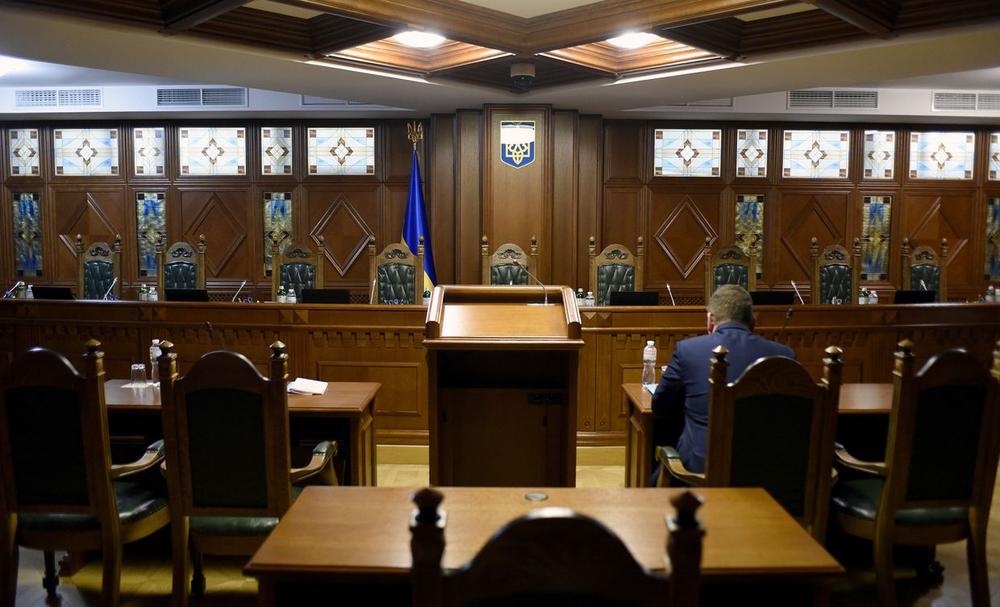Lawmakers have begun collecting signatures to file a motion to the Constitutional Court challenging a controversial law that strips independence from the country's top anti-corruption institutions, lawmaker Yaroslav Zhelezniak said on July 22.
Ukraine passed legislation on July 22 granting the prosecutor general vast authority over the National Anti-Corruption Bureau of Ukraine (NABU) and the Specialized Anti-Corruption Prosecutor's Office (SAPO).
The law, quickly pushed through by President Volodymyr Zelensky's lawmakers and signed by the president the same day, is seen as an effort to dismantle Ukraine's anti-corruption infrastructure and sparked demonstrations in Kyiv and other cities.
"The only thing that can be done now to remedy the situation is to demolish this shoddy law in the Constitutional Court," Zhelezniak, a member of the opposition Holos party, wrote on Telegram.
Zhelezniak claimed that procedural rules were violated during the bill's passage, making the constitutional challenge viable. The motion will require at least 45 signatures from members of parliament.
"I think that this number (of signatures) can be found in the parliament," the lawmaker said.
In Ukraine, bringing a case to the Constitutional Court means that a group of lawmakers or the president can formally challenge the legality of a law by asking the court to assess whether it complies with the country's Constitution.
If the court rules that the law violates constitutional principles, it can be struck down in part or in full.
Zhelezniak also expressed hope that international reaction might help reverse the legislation, though acknowledged it would be difficult to undo the damage.
The law redefines NABU and SAPO as regular law enforcement agencies rather than independent bodies.
Under the new framework, the prosecutor general will have the authority to influence investigations, issue procedural orders, and block cases brought by anti-corruption prosecutors — practices that the current institutional design was explicitly created to prevent.
The changes effectively dismantle the autonomy that allowed NABU and SAPO to pursue high-level corruption cases without political interference.
The legislation was passed with little public debate and amid warnings from Ukraine's anti-corruption watchdogs, who called it a "death blow" to Ukraine's already fragile anti-corruption architecture.
Legal experts and officials, including SAPO head Oleksandr Klymenko, warned that the law breaches multiple constitutional norms and undermines obligations Ukraine made to the European Union as part of its membership bid.
Ukraine's civil society, the European Commission, and anti-corruption NGOs have spoken out against the reform.

 The Love Hypothesis: arriva la rom-com virale con Lili Reinhart
The Love Hypothesis: arriva la rom-com virale con Lili Reinhart